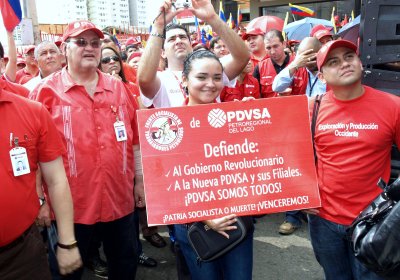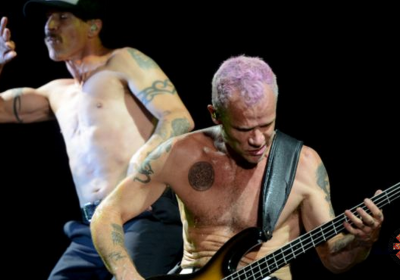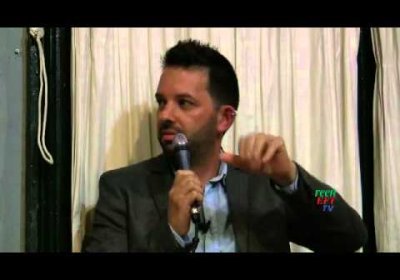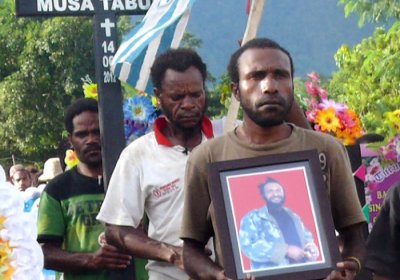Venezuelan President Hugo Chavez was re-elected in October 7, winning more than 55% of the vote. He stood on a detailed 39-page program to deepen the popular revolution his government is leading, which has already lowered extreme poverty by more than 70%. The plan to push for a socialist transition over Chavez's next six-year term will be debated in communities and popular organisations across Venezuela over the coming months, before it is put to the National Assembly for adoption early next year.
National liberation
Recently re-elected Venezuelan President Hugo Chavez said his next six year term would mark a period of “greater advance” towards building socialism, as well as “greater efficiency in this transition from capitalism”.
The Venezuelan president made the comments on October 10 during a ceremony with the National Electoral Council (CNE). Three days earlier, Chavez beat right-wing candidate Capriles Radonski by 11.11% in presidential elections. Chavez took more than 55% of the vote.
The results of October 21 election for the parliament of Euskadi, the Basque autonomous community within the Spanish state, are expected to confirm the rising popularity of the left nationalist coalition, Euskal Herria Bildu (EH Bildu―Basque Country Assembly).
Regardless of whether EH Bildu tops the vote or is pipped by the conservative Basque Nationalist Party (PNV), progressive politics in Euskadi seems certain to record its best ever result.
Over the past three years Christian Super, a not-for-profit industry fund, has engaged in dialogue with Australian company Wesfarmers over its sourcing of phosphate rock from Western Sahara. Phosphate is used in its production of agricultural superphosphate.
“Western Sahara is a disputed territory where human rights abuses have been reported,” said Tim Macready, chief investment officer for Christian Super. “Companies doing business in this area may unwittingly aggravate the conflict or become complicit to oppression.”
There is something incredibly frustrating about the fact that the Red Hot Chili Peppers played a concert in Israel, ignoring international pleas for them to cancel and observe the Palestinian call for boycott, divestment and sanctions (BDS).
Admittedly, I wasn’t even quite aware of just how much their decision stung until the day after their appearance at the Pic.Nic festival in Tel Aviv.
Independent journalist, political activist and author Antony Loewenstein discusses his new book After Zionism, at Sydney's Gleebooks on October 2.
Tommy Docherty, the legendary wit and former manager of Manchester United, once quipped after his team had suffered a humiliating defeat, “We lost 4-0 and frankly we were lucky to get the nil”.
The Tories in Scotland know just how he felt, for they are so hated that out of 56 MPs they have just one, and they were lucky to get that!
Alejandro Fierro from Rebelion spells out five key lessons to be taken from the Venezuela's presidential elections, which were one by President Hugo Chavez with 55% of the vote. It was translated by Tamara Pearson from Venezuela Analysis.
* * *
1. Venezuela is an authentic democracy
Nothing quite prepares you for a first visit to Venezuela ― especially when the country is polarised between two very different visions for the future.
This is how it was just before the October 7 presidential elections, which socialist President Hugo Chavez won with 55% of the vote in the largest turnout, more than 81%, in Venezuelan history.
Indonesia has further intensified its repression of West Papuan independence activists, in an apparent response to independence leaders speaking to foreign media.
Eight independence activists from the West Papua National Committee (KNBP) were arrested in Wamena on September 29 and accused of bomb-making and treason, West Papua Media (WPM) said on September 30. The operation involved the notorious Australian funded and trained Detachment 88 anti-terrorist unit.
Our dear friend and comrade PA (Ram) Subramaniam, a tireless and courageous supporter of Tamil freedom and the liberation of all humanity, died on the morning of October 4.
When PA called to advise us of his cancer diagnosis less than two months ago, he did so in a completely matter of fact way. There was not a hint of self-pity or regret. In fact there was a renewed impatience and urgency.
The Australian government's support for Indonesia's occupation of West Papua reached absurd levels on September 12. Labor and Coalition senators voted down a Senate condolence motion for late refugee advocate and Papuan solidarity activist Vikki Riley on the basis that it contained the words “West Papua”.
The Don't Say These Words? blog said on September 13 that Country Liberal Senator Nigel Scullion told the mover of the motion, John Madigan of the Democratic Labor Party, that he would support the motion if the words “West Papua” were removed.
- Previous page
- Page 113
- Next page








